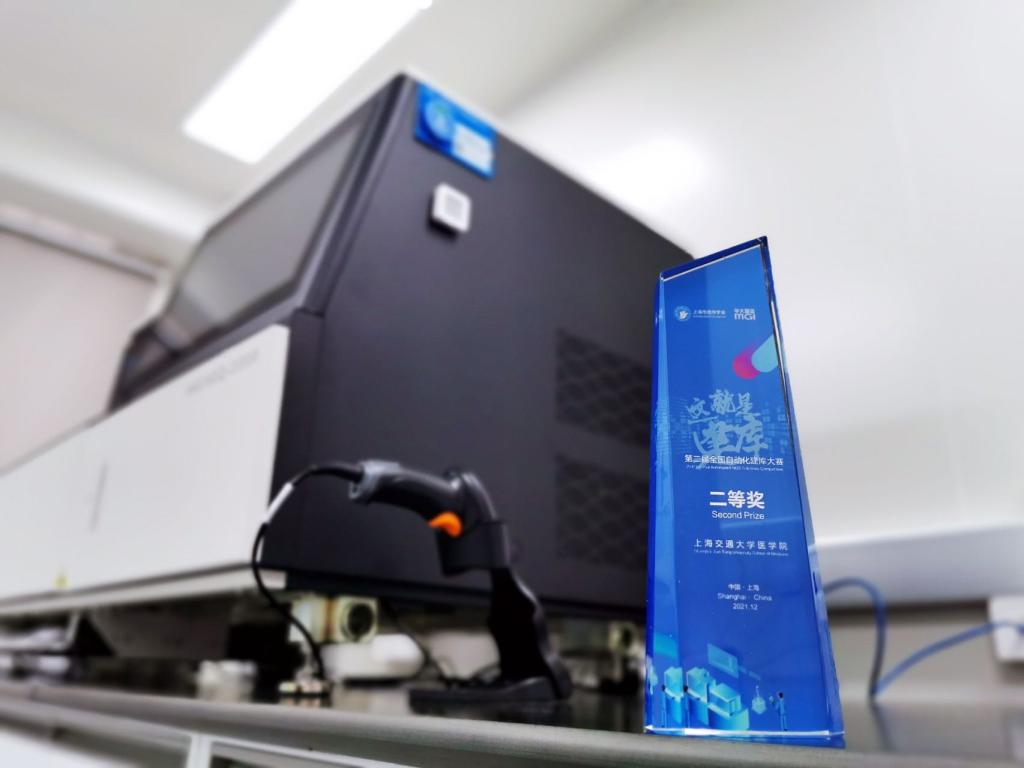Recently, the 2nd National Automated NGS Solution Competition completed successfully. The CSCOmics team, composed of Jian He, Mei Meng and Xianchao Zhou, was awarded the second prize. This competition attracted more than 100 professional participators from more than 50 institution, and our team was barged to the forefront after overcome all the difficulties.
The 2nd National Automated NGS Solution Competition was jointly sponsored by Shanghai Society of Genetics and MGI, and it is for laboratory professionals in research institutions, hospitals, third-party independent medical inspection institutes, and government public health systems from all over the country. This competition lasted for 3 months, and went through a series of evaluations such as theoretical training and test, practical training and assessment, and bio-information analysis test, in order to evaluate the actual operation and application of the contestants.
Jian He said:” This competition provides a stage for us to communicate and demonstrate our strength with participators from other institutions and companies. In this competition, the great improvement and booming of MGI, as a representative of instruments industry in China really impressed us. We was deeply moved by the responsibility of MGI. This award goes to our team will be an great encouragement to all players from research institutions, and also a recognition of CSCOmics' capabilities in the NGS industry."
With the maturity and cost reduction of NGS, it has been widely used in scientific research and clinical applications such as genetic eugenics, tumor diagnosis and treatment. In recent years, single-cell sequencing is developing swiftly, and has been applied to a variety of applications such as single cell whole genome/exome analysis, single cell transcriptomics analysis, single cell methylome analysis and spatial transcriptome. The construction of single-cell libraries is the premise of the above sequencing solutions. Automated library construction can simplify the workflow, reduce manual errors, and build faster, more stable, and higher-quality libraries for the down streaming analysis.


We believe that the single-cell analysis efficacy in CSCOmics will be increased dramatically by introducing these handy platforms which are helpful to the development and optimization of the single-cell analysis technology. And further provide cutting-edge single-cell analysis strategies to our internal investigators as well as other investigators in the School of Medicine. Moreover, provide the fundamental and facilities for studying the mechanisms of human major diseases and developing novel biomarkers and therapeutic approaches.
In the future, we are confident that we will press forward with indomitable will in single-cell multi-omics research, continue to pursue the highest quality work attitude, sure-footed work style, and scale new heights in the new year!
